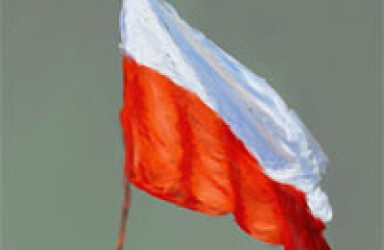Experimental Insights on Corruption in International Political Economy
The conventional understanding of corruption in International Political Economy is limited. Our understanding of corruption can improve through the insights of economic experiments. These offer explanations on the psychological, cultural and moral aspects of corruption, which have important policy implications
The Obstacles in the Creation of a Common EU Energy Policy
At a time when energy is becoming one of the critical issues in the world, there is a great need for such a powerful entity as the EU to speak with one voice and develop a common energy policy. But the main obstacle for a genuine development of a common energy policy is the strong differences between member states preferences for a common energy policy
NATO and Russia: Towards a New Paradigm?
Can Russia’s mistrust of NATO enlargement finally be left behind, as the former foes move towards a new strategic partnership? It is obvious that the introduction of a system including Russia as a strategic partner with weighted voting rights will lead to diplomatic horse trading and lobbying. But it is preferable that any “conflict” in this new relationship be conducted in the back corridors and board rooms of Brussels, rather than in Georgia, the road to Pristina or the skies over Sarajevo.
Ukraine’s Neutrality: A Myth or Reality?
Situated at a crossroad between Russia and the European Union, Ukraine was never able to cohesively decide and act with a foreign policy that was not chaotic or unsynchronized. Applying neutrality in practice to the case of Ukraine implies a serious step in foreign policy, for the country itself as well as for the region. Passing and implementing the needed legislation would imply finally taking a decisive step towards a much needed coherent foreign policy.
The Emissions Trading Scheme: EU Leadership, Problems and Decision-Making
It is now widely recognised that climate change is affecting the earth’s atmosphere and that governments must act quickly and efficiently in order to halt this. The EU Emissions Trading Scheme has been held up as the centrepiece of EU legislation, allowing the EU to perform a leadership role globally by initiating the world’s largest multi-country, multi-sector greenhouse gas emissions trading scheme ever seen.
Entitlement to Eat: Explaining the Ukraine Famine of 1932-1933
Scholars do not agree on the causes of the Ukrainian Famine of 1932-1933, popularly known as the Holodomar (“murder by hunger”). Recent research suggests Stalin used “food as a weapon” to subdue Ukrainian national movements. This analysis poses significant challenges to the existing larger body of famine scholarship.
Transnational Labour Migration and the International Sex Trade
The sex trade has been overlooked in migration studies, often only appearing in criminological or gender studies.
EU-Russia Energy Relations: Lack of Unity in the Union
Since the 1990s, the European Union has achieved various successes. A key example is the enlargement to include a large number of Central and Eastern European countries. During this time, the EU has also experienced some failures, such as in the case of energy relations with Russia.
Between Europe and America: Polish choices for the 21st Century
This paper aims at understanding Polish foreign policy over the last decade with a view to predicting future policy. It analyses Polish foreign policy with reference to three rationalist paradigms: defensive realism, offensive realism, and neo-liberal institutionalism.
The food crisis: its causes and consequences
The English revolution in the middle of the 17th Century, the French revolution at the end of the 18th Century, and the Russian revolution at the beginning of the 20th Century— all were revolutions of the same nature.Similarly, there is no doubt that the 2011 Arab Spring has been provoked by a food crisis. But the food crisis does not only influence the Middle East. In India and Bangladesh revolution is inevitable.











